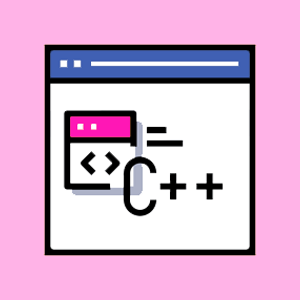 C++ stands as one of the oldest and most influential programming languages, renowned for its low-level control, high-speed execution, and extensive capabilities. Its unique blend of low-level efficiency and high-level object-oriented features has secured its position as a top choice for systems programming, game development, and more. In this blog post, we will delve into the world of C++, exploring its background, pros and cons, and whether it’s worth considering as a language to learn.
C++ stands as one of the oldest and most influential programming languages, renowned for its low-level control, high-speed execution, and extensive capabilities. Its unique blend of low-level efficiency and high-level object-oriented features has secured its position as a top choice for systems programming, game development, and more. In this blog post, we will delve into the world of C++, exploring its background, pros and cons, and whether it’s worth considering as a language to learn.
What is C++?
C++ is a general-purpose programming language that evolved from its predecessor, the C programming language. Often referred to as “C with classes,” C++ introduced powerful object-oriented features to the existing C syntax. This merger allowed developers to achieve fine-grained control over memory usage while benefiting from modern object-oriented programming principles.
C++ was conceived by Bjarne Stroustrup in 1985, as he aimed to combine the efficiency of C with the advantages of object-oriented programming. The language has since evolved, becoming one of the most widely used programming languages, particularly in fields where performance and efficiency are crucial.
Pros of C++
- Portability: C++ programs, following a compiler-independent standard, can often be executed across various platforms, making it portable and versatile.
- Object-Oriented: C++ introduced robust object-oriented principles, offering developers features like classes, inheritance, polymorphism, and encapsulation, all while retaining low-level control.
- Multi-Paradigm: With time, C++ has evolved to support procedural, object-oriented, functional, and generic programming paradigms, making it a highly adaptable language.
- Low-Level Control, High-Level Features: C++ strikes a balance between low-level control for tasks like memory manipulation and high-level abstractions for convenient program design.
- Efficiency: C++ is renowned for its efficiency, as it operates close to the hardware level. This attribute makes it ideal for resource-intensive applications like systems programming and game development.
Cons of C++
- Complexity: Learning C++ can be challenging, especially for developers accustomed to more modern programming languages. Features like pointers and manual memory management can be intricate to grasp.
- Platform-Specific: While C++ is portable, certain programs may rely on platform-specific libraries for tasks like graphical displays, which can complicate portability.
- Lack of Garbage Collection: Unlike languages with garbage collection, C++ requires manual memory management, adding complexity and increasing the risk of memory leaks.
- Unsafe: The low-level memory management in C++ can lead to memory-related issues, such as memory leaks, if not managed correctly.
- Lack of Built-in Thread Support: While C++ is adding support for threads, it still lacks comprehensive built-in support for multi-threaded applications compared to other languages.
Should You Learn C++?
Learning C++ can offer a range of benefits to aspiring programmers and software developers:
- Gain a Deeper Understanding: Learning C++ provides insight into the inner workings of computers, memory management, and low-level programming, fostering a strong foundation for software development.
- Enhance Problem-Solving Skills: Mastering C++ involves tackling complex concepts, which can enhance your problem-solving skills and adaptability as a programmer.
- Build Efficient Applications: C++ is well-suited for applications that require fine-grained control over hardware resources and demand high efficiency, making it valuable for systems programming and performance-intensive tasks.
- Expand Career Opportunities: Proficiency in C++ opens the door to a wide range of career opportunities, including game development, systems programming, embedded systems, and more.
Conclusion
C++ remains a prominent and influential programming language, cherished for its blend of low-level efficiency and high-level features. While it poses challenges in terms of complexity and memory management, its benefits far outweigh its drawbacks. Learning C++ can provide a deeper understanding of computer systems, enhance problem-solving skills, and lead to exciting career prospects in various fields. Whether you’re aiming to develop efficient applications, understand the fundamentals of programming, or build a solid programming career, C++ is a language worth considering.
